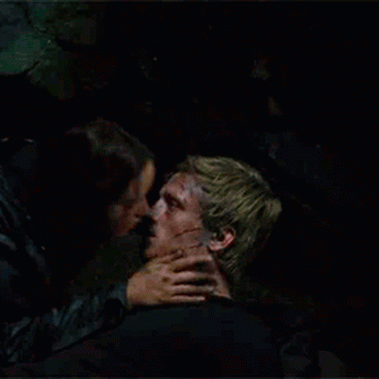After I first read "The Hunger Games" nearly a decade ago, my obsession with the series influenced my life and future reading tendencies for years after. Katniss was one of the strongest female protagonists I had encountered in YA up to that point, and her spirited character left me braiding my hair to be like her. By the time they announced the movie adaptation, I was already preparing for ticket pre-orders and midnight premieres. But when I saw the first movie in theaters, I wasn't wowed. It was satisfactory. Just okay. It was missing something from the books, but fourteen-year-old me wasn't sure exactly what. But now after reflecting on the movies years later, I know. The movies just missed the entire point of the books or, rather, ignored it for the sake of cheap cinematic thrills.
Before I get into the movies' shortcomings, it's important to note that not all of it was bad and they certainly weren't the worst movie adaptations ever. There were some movie moments that captured the essence of the novels and the strongest example of this was Rue's death.
Jennifer Lawrence's performance in this scene brought me to tears and I wholeheartedly believed that she was Katniss and I was watching the event that sparked her hunger for rebellion. It was so raw and emotional and was one of the only moments that focused on what the whole series is actually about: the Capitol, the allegory for the United States' affluent, corrupt, and oppressive political atmosphere, is Katniss's true enemy.
But this level of poignancy and depth isn't achieved again in the rest of the movies. We see shots of Capitol citizens in ridiculous, fancy clothing, but the whole setting feels hollow. Effie is really the only Capitol citizen we get to know, but Katniss's repeated interactions with the ignorant cruelty of the entity that controls the rest of the country is lost in the transition to the big screen.
And rather than explore these ideas of tyranny and the dynamics of a government that forces its citizens to send their children to fight to the death, there was an unnecessary emphasis on the love triangle.
Sure we saw images of the uprising in action sequences, but the main focus of the movies was always on the fight scenes, explosions, mutts, etc. In the books, of course these elements were there, but they were only there to highlight the horrific experiences Panem citizens endured because of their enslavement to the Capitol.
Prim was sidelined for most of the story. She didn't get much more dialogue in the books, but we knew so much more about her because she was always in Katniss's mind. Prim was always her first worry and first priority. This was also lost in translation and as a result, when she dies in "Mockingjay: Part II", there's little emotional impact. Filmmakers only seemed to use war as a backdrop for the Gale vs. Team conflict and violent action sequences.
In Haymitch's words, filmmakers needed to "remember who the real enemy is". The reason this book series was so successful was because it focused on real, compelling themes of poverty, sacrifice, family, and the bravery of rebelling in the face of oppression. So when Hollywood inevitably remakes "The Hunger Games" decades from now, I'll be the first in line with high hopes of seeing a movie that transcends the young adult genre, just as the novels did.



















